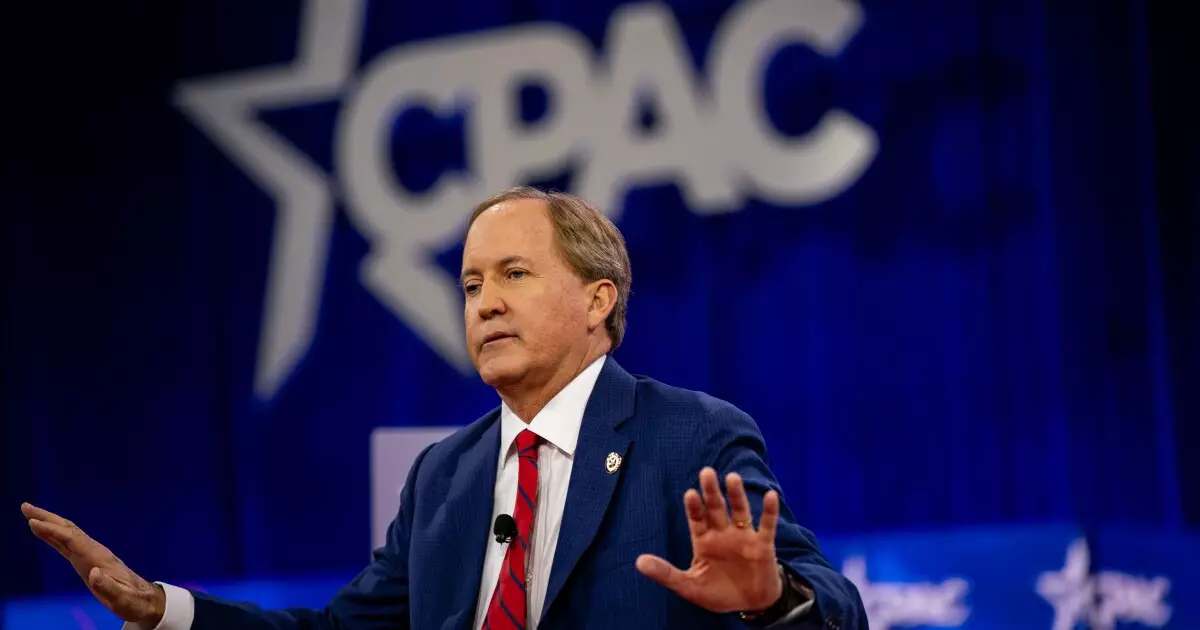The financial landscape in Texas has been transforming rapidly, especially in light of the increasing scrutiny of environmental, social, and governance (ESG) criteria that large financial institutions must navigate. A notable instance of this scrutiny emerged from the office of Texas Attorney General Ken Paxton, who initiated a protracted investigation of Wells Fargo. Originally aimed at potentially banning the bank from underwriting governmental bonds due to its connection with the Net-Zero Banking Alliance (NZBA), this review reflects broader tensions around sustainability practices and fossil fuel investments. The investigation lasted 14 months and culminated in a significant decision that underscores the influence of state government on corporate practices.
Wells Fargo’s recent withdrawal from the NZBA was a pivotal factor leading to the termination of the review. The NZBA’s mission is to foster a transition towards net-zero greenhouse gas emissions by the year 2050, aligning the banking sector with global climate goals. However, Texas’s legal framework does not favor such alignments if they threaten the fossil fuel industry, which remains a cornerstone of the state’s economy. By distancing itself from the NZBA, Wells Fargo not only avoided a potential ban but also sent a reassuring signal to Texas officials about its ongoing commitment to the local economy, particularly to the oil and gas sectors. Paxton’s remarks emphasized this point, reinforcing that banks should align themselves with the interests of industries pivotal to Texas’s economic framework.
The legal context surrounding this review is as complex as it is significant. A law enacted in Texas in 2021 prohibits state contracts exceeding $100,000 with entities that “boycott” fossil fuel ventures. This statute is part of a broader legislative trend that aims to counter ESG policies perceived as detrimental to traditional energy sectors. This move, however, is not without controversy. A business group has challenged the constitutionality of the law, bringing a lawsuit against Paxton and Texas Comptroller Glenn Hegar. This ongoing legal battle raises questions about the intersection of corporate governance and government authority, especially in areas that concern economic rights versus regulatory controls.
During the 14-month review process, Wells Fargo maintained a prominent role in underwriting several high-profile bond deals within Texas. Noteworthy transactions included a significant revenue bond sale for the Dallas Fort Worth International Airport, which earned accolades as the Southwest region’s Deal of the Year. Additionally, the bank facilitated major bond issues for the Texas Transportation Commission and the Harris County-Houston Sports Authority. These activities highlight the bank’s substantial investment in the region, suggesting that its alignment with the state is not merely strategic but also essential for continuing operations in a lucrative market.
Wells Fargo’s withdrawal from the NZBA indicates the increasing pressure on financial institutions to adhere to regional legislative expectations rather than global sustainability frameworks. Paxton’s statement urging other banks to abandon ESG policies reflects an environment where state governments are taking a more aggressive stance against perceived corporate overreach into socio-political matters. The situation signifies a potential realignment in how companies balance their commitments to sustainability with the need to maintain profitable relationships within essential industries like oil and gas.
The decision taken by Texas Attorney General Ken Paxton to conclude the review of Wells Fargo serves as a substantial commentary on the relationship between financial institutions and state governance. The outcomes not only address immediate contracting concerns but resonate with broader national dialogues surrounding ESG criteria and corporate responsibility. As these dynamics continue to evolve, it will be crucial for stakeholders to navigate the complex interplay between environmental goals and the foundational industries that drive many state economies. The anticipated legal challenges will likely play a significant role in shaping the future landscape of financial governance in Texas and beyond.


Leave a Reply